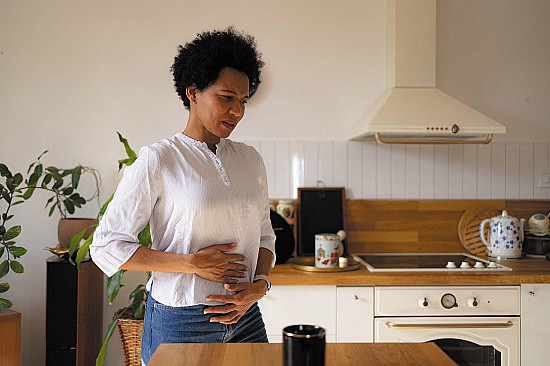When your colonoscopy reveals that you have diverticulosis, hemorrhoids, or both
In most cases, you won't know they're there. But if things change, home remedies often help.

Image: © ttsz, JFalcetti/Thinkstock
You received good news after your last colonoscopy: no cancer or precancerous polyps. But with the good news came with another finding: though you don't have symptoms, you do have diverticulosis and hemorrhoids. The news may be puzzling, but don't worry. Both conditions are common and usually don't cause any problems.
Diverticulosis
Diverticulosis is the term used to describe the presence of diverticula — pouch-like structures that sometimes form in the muscular wall of the colon and bulge outward. Between 40% and 60% of people have them, and they get more common as we age. They tend to cluster in the sigmoid colon, just above the rectum.
Diverticulosis only causes symptoms if one of the diverticula bleeds or gets infected. When bleeding does occur, it tends to be intense for a short period, but usually stops on its own. We don't know the cause of the diverticular bleeding, only that something injures a blood vessel in the pouch. Even if bleeding stops on its own, you can still lose a considerable amount of blood, so you should see a doctor.
In some people, diverticula can get infected. That's called diverticulitis. It's not clear why or how diverticulitis develops. Age, obesity, a lack of exercise, and a low-fiber diet are risk factors for the condition.
Typical symptoms of diverticulitis include lower abdominal pain, more often on the left side; fever; and change in bowel habits, either loose stools or constipation. Mild cases might not even need antibiotics. But most often doctors will treat will oral antibiotics initially to prevent it from getting worse. People with more severe disease, such as an abscess (pocket of infection) or pus that needs drainage, often need hospitalization for intravenous antibiotics.
Preventing problems
It's not clear yet if we can prevent diverticulosis or diverticulitis. Exercising, controlling your weight, and eating less red meat and more fiber may help. Some data suggest that more fiber reduces the risk of both developing diverticula and getting symptoms if you already have them.
Adults should get 25 to 30 grams of dietary fiber every day from foods such as beans, whole grains, vegetables, and fruits. A fiber supplement may also help. But add fiber to your diet slowly, since you can get gas and bloating if you increase your fiber intake too fast.
What about the warning that eating foods with small seeds can add to diverticulitis risk? There used to be a theory that seeds, nuts, and popcorn increased the risk of diverticulosis and diverticulitis, because they might lodge in the pouches and cause irritation or infection. However, that's never been proved. Seeds and nuts are an important source of fiber.
Hemorrhoids
Hemorrhoids have a bad rap, but we all have these pillow-like clusters of veins in the lining of the lower part of the rectum and anus, which help play a role in preventing stool leakage. When they become enlarged, however, they are anything but helpful and can even contribute to some leakage in addition to pain, itching, and bleeding.
What causes hemorrhoids to swell? The veins are anchored by connective tissue. If the tissue is weakened, the hemorrhoids bulge out. The weakened tissue may be caused by a combination of genetics and pressure from sitting on a toilet too long or straining to have a bowel movement. Pregnancy is also a common trigger.
When hemorrhoids in the lower rectum (internal hemorrhoids) swell, they may bleed, and you may see bright red blood in the toilet. But you won't feel the hemorrhoids unless they extend beyond the anus and become itchy.
The hemorrhoids most people complain about (called external hemorrhoids) are located outside the anus. If they become swollen, the overlying skin becomes irritated, erodes, and may itch or hurt. A clot can form inside the hemorrhoid, which can be very painful.
Treatment and prevention
Hemorrhoids are typically diagnosed from a medical history and physical exam. Home remedies are usually effective to treat external hemorrhoids. Sitting in a warm bath may help soothe an irritated hemorrhoid. And lifestyle changes can also make a difference. Avoid sitting and straining on the toilet for long periods, and make sure stool moves along. He suggests increasing dietary fiber intake; using stool softener, such as docusate (Colace); or using a gentle laxative if you're constipated, such as polyethylene glycol 3350 (Miralax).
Internal hemorrhoids that are bothersome are usually resolved with minimally invasive procedures performed in a doctor's office.
Disclaimer:
As a service to our readers, Harvard Health Publishing provides access to our library of archived content. Please note the date of last review or update on all articles.
No content on this site, regardless of date, should ever be used as a substitute for direct medical advice from your doctor or other qualified clinician.















